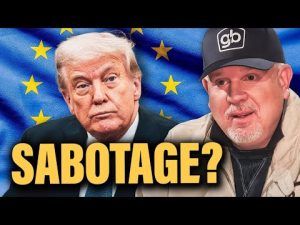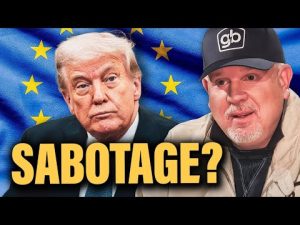In a recent meeting at the White House, President Trump welcomed Israeli Prime Minister Benjamin Netanyahu for discussions that were anything but light chit-chat. The two leaders dove into significant topics, including tariffs, the volatile situation in Gaza, and a rather prickly mention of Iran and its nuclear ambitions. With the capital’s skyline looming in the background, the stakes were high, and the tension palpable, setting the stage for what could be a game-changing series of negotiations on the international front.
One of the most noteworthy announcements from the meeting was Trump’s commitment to engage in direct high-level talks with Iran regarding its nuclear program. Previously, there had been chatter about whether these discussions would happen through intermediaries. However, President Trump made clear that the United States intends to speak directly, making things much more straightforward—or as straightforward as talking to Iran can be. This hints at a shift in strategy aimed at addressing concerns about Iran’s nuclear capabilities and perhaps getting them to play nice on the international stage.
As the leaders navigated these treacherous waters, Prime Minister Netanyahu expressed that Israel and the U.S. are united in their mission to prevent Iran from obtaining nuclear weapons. This solidarity is fantastic news for those who cherish peace, but the ominous report from the Institute for Science and National Security added a threatening twist. They claim that Iran already possesses enough weapons-grade uranium to initiate nuclear weapon construction in mere weeks. Talk about a ticking time bomb—and not the kind you want to see in a movie!
Meanwhile, while the Iranian situation is heating up, the topic of tariffs isn’t cooling off either. Treasury Secretary Scott Besson urged world leaders to keep calm and avoid escalating tensions by dropping their own tariffs. It seems that the message from the Trump administration is clear: play nice, or face the consequences. President Trump remained firm on the tariffs, leaving no room for misunderstandings. He expressed no intention of pausing these economic measures, indicating that negotiations will only be entertained if they can result in truly beneficial outcomes for the United States.
After the sun sets, President Trump plans to implement those individualized reciprocal tariffs, targeting countries that have historically posed trade barriers against the U.S. This tactic aims to ensure that trade practices are fair and equitable, especially against nations that significantly trade against the U.S. And who does he think is on the naughty list? The countries that contribute to the largest trade deficits with the United States will be facing the music soon enough.
While there’s still time for world leaders to come to the negotiating table, the stakes couldn’t be higher. As President Trump leads the charge on these pressing international issues, it will be captivating to see how these unfolding events impact global relations and trade dynamics in the coming weeks. Will they find a middle ground, or will things escalate into uncharted waters? Only time—and those high-level talks—will tell.







